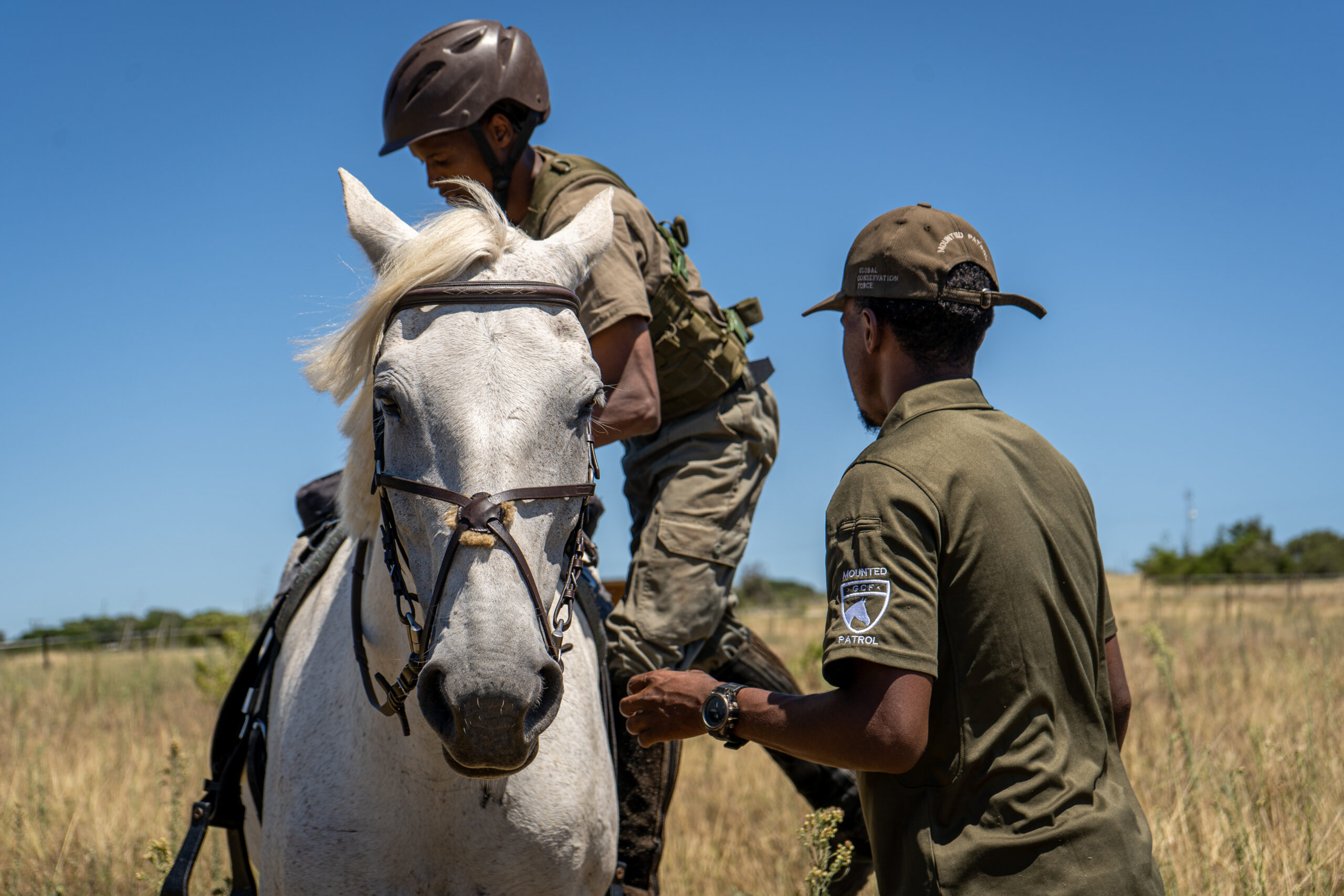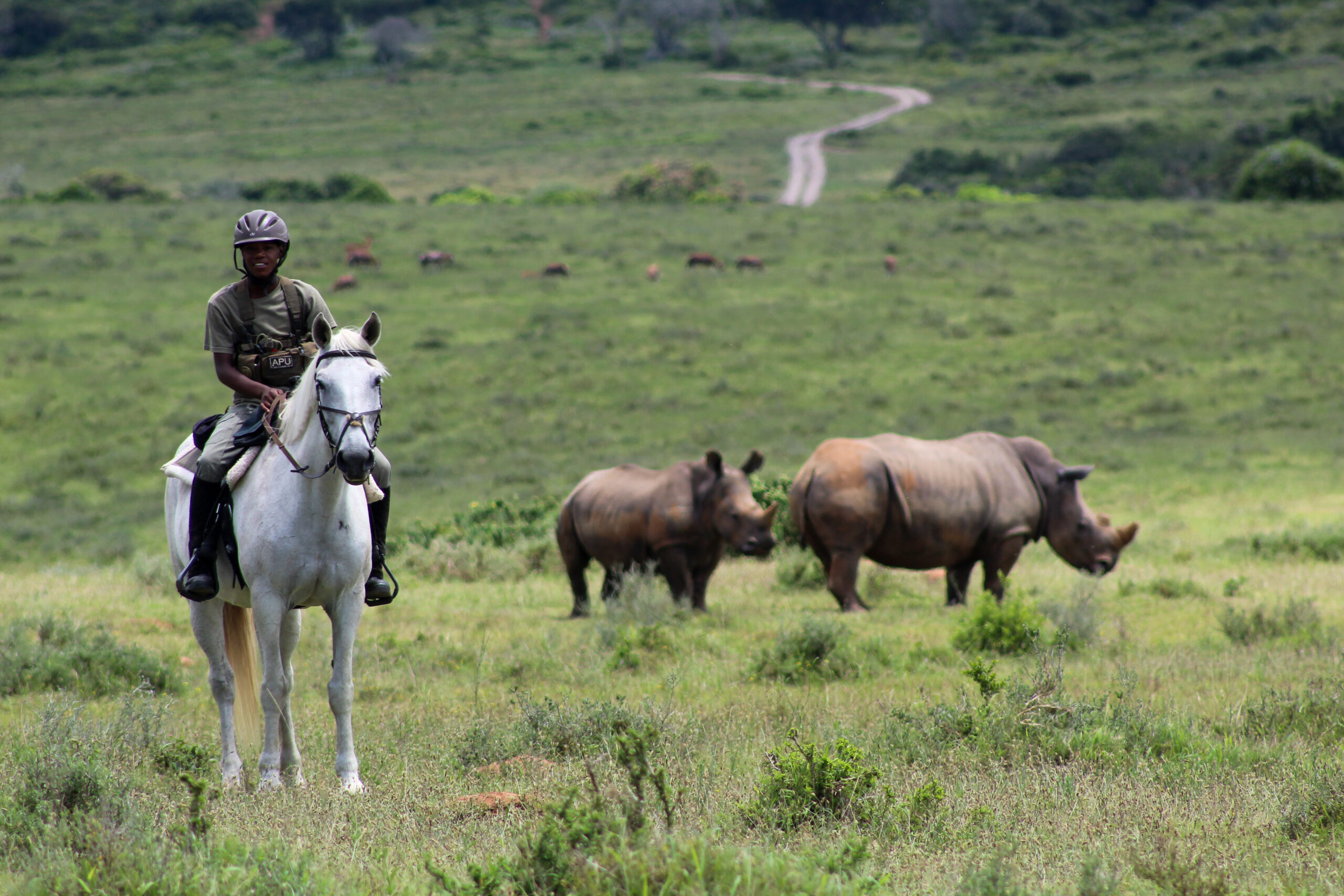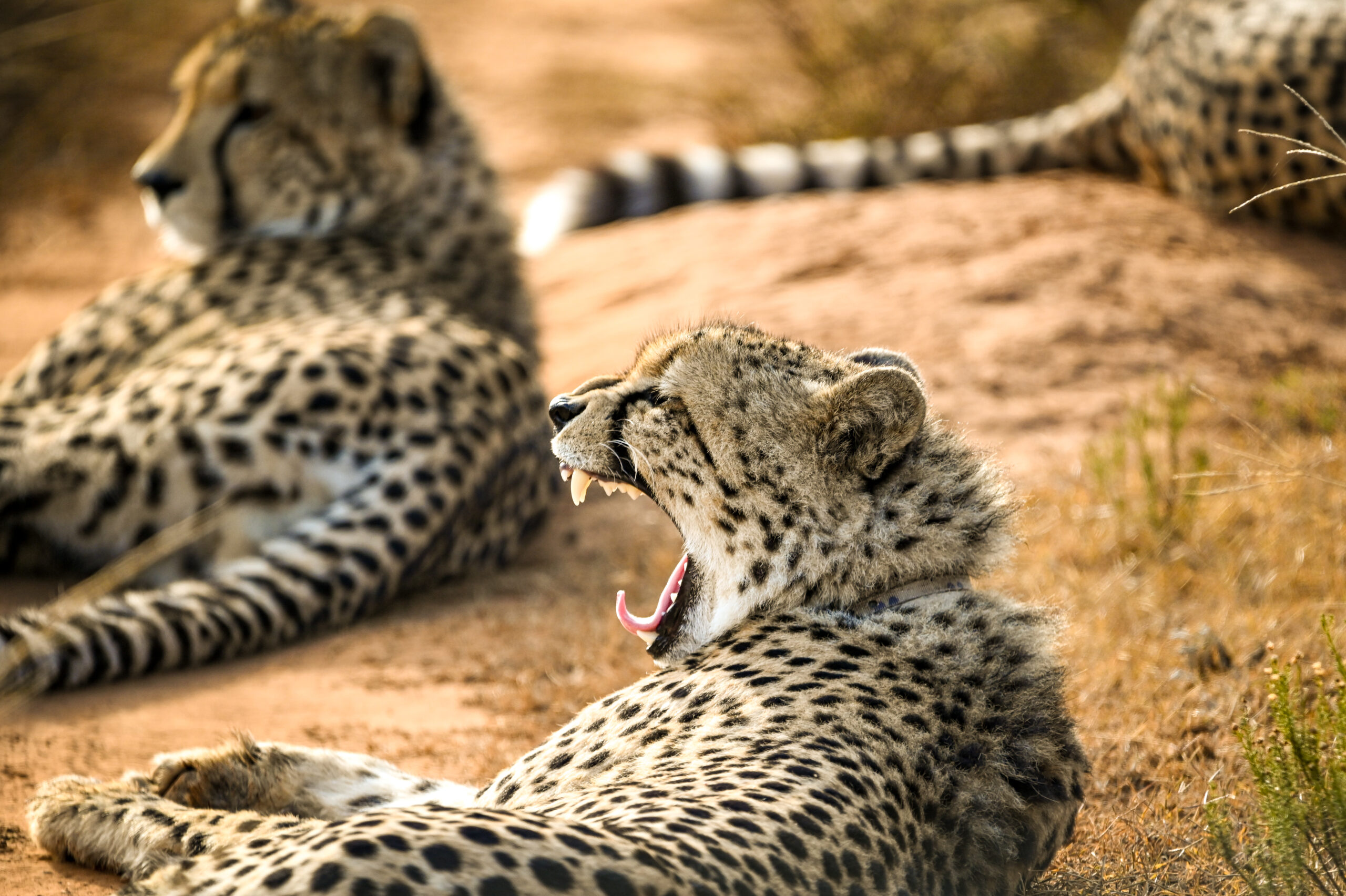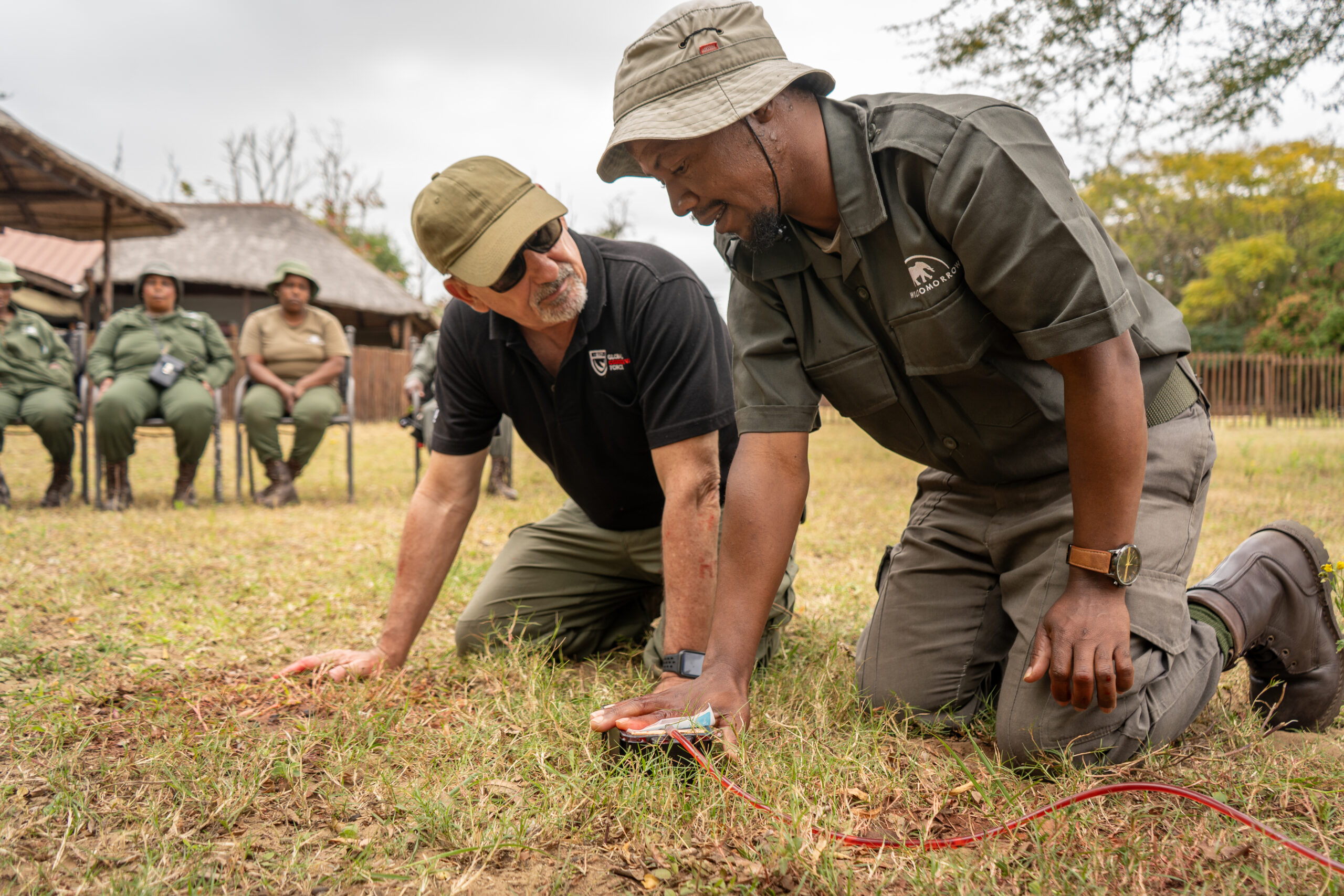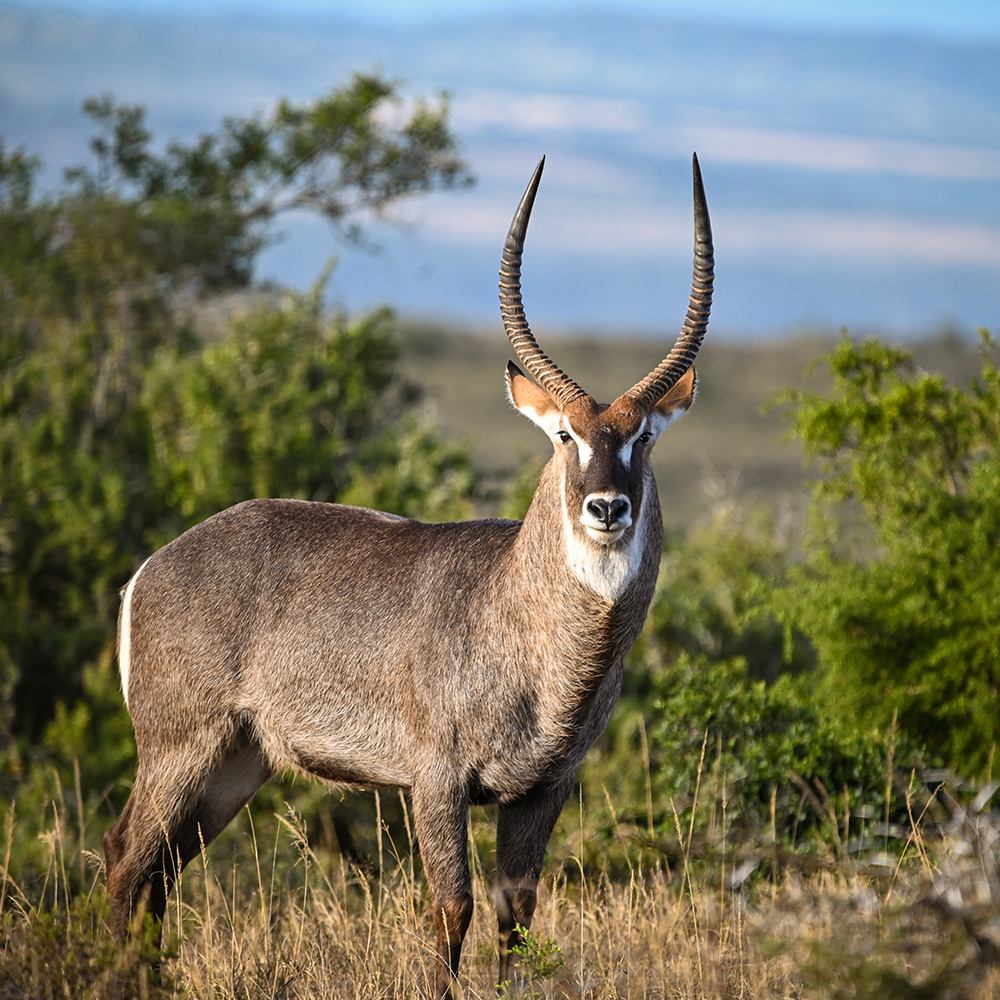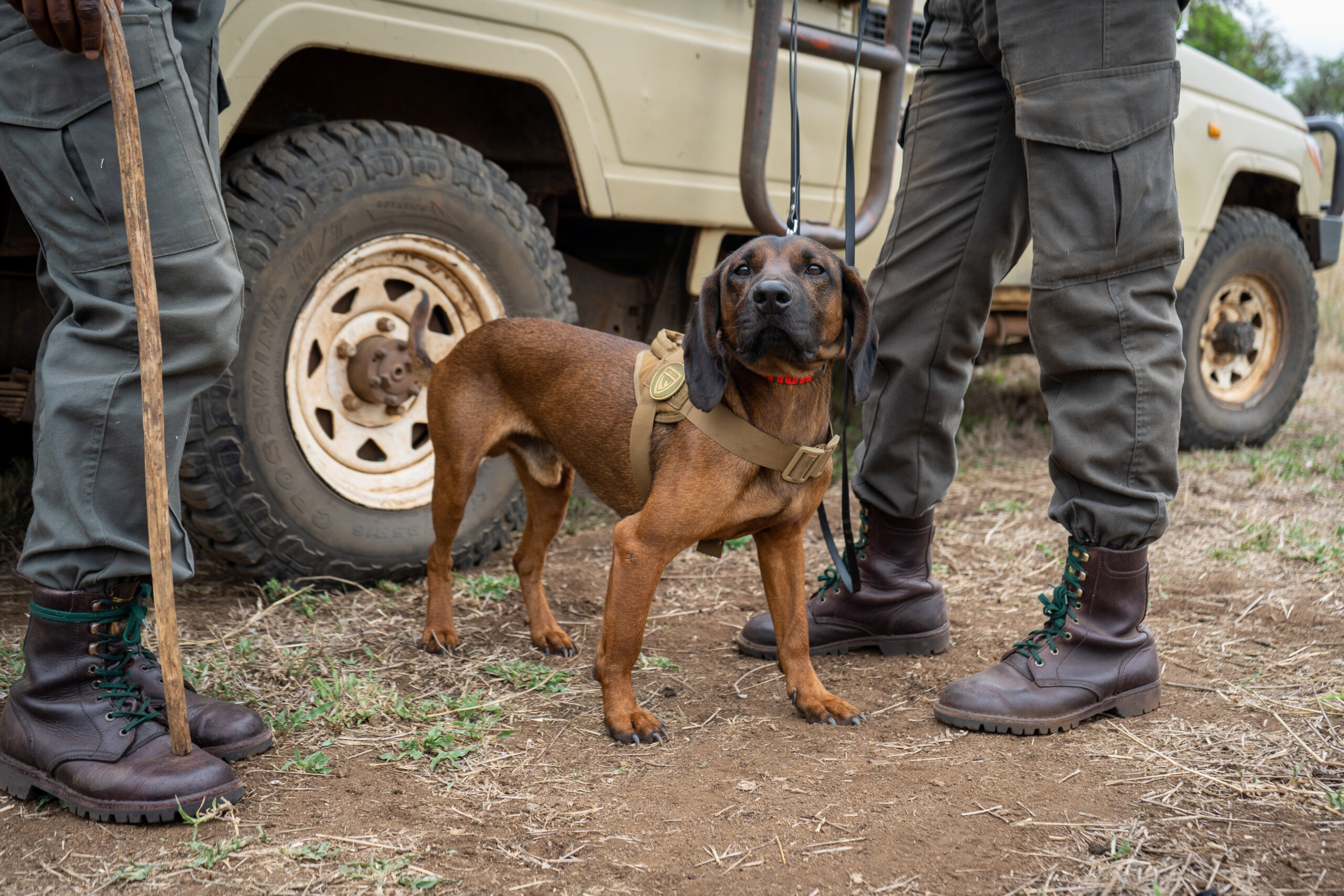Mounted Anti-Poaching Units
Much like dogs have been brought into the poaching crisis for their specific skill set, horses have proven a useful addition for anti-poaching units. Many active units are incorporating horses into their arsenal of tools to fight poaching. The horses have also been a game-changer for the rangers on patrol. On foot, a ranger can patrol 6 to 13 kilometers per 8-hour shift depending upon terrain. On horseback, the rangers can travel faster and farther than on foot, covering about 31 kilometers over a standard 5.5-hour patrol.
Horses also have advantages over vehicle patrols – they can travel more quietly and with less ecological impact. They are able to follow the exact pathways of rhinos, elephants and other wildlife where vehicles can meet heavy challenges in rough or steep terrain. This is also beneficial for emergency veterinary procedures or management efforts, as it is possible to get much closer to an animal hiding in the brush to administer a tranquilizer dart. Mounted rangers also have an added level of protection. For example, horses give the ranger a higher field of vision over tall savanna grasses. Wildlife reacts to mounted rangers as they would a new or interesting animal – with curiosity as opposed to fear. A horse can outrun most dangerous animals, while a ranger on foot must be extra diligent since they can’t get away as fast. The horses command respect and elicit a degree of fear and intimidation from the poachers. Being chased down and apprehended by a mounted ranger is a very real possibility and one that makes them think twice about the location they choose. The advantages the horses bring to patrol come at a time when rhino poaching in the Eastern Cape is on the rise. The Eastern Cape saw a 58% increase in poaching in 2018 over the previous year. The increase of poaching incidents in the Eastern Cape indicates a change in the poachers’ targeted zones.
The horses have created an amazing opportunity for the rangers to connect with the community, acting as a gateway animal for the village to bond with and paving the road of trust and community involvement with the wildlife and the APU. Despite living in such close proximity, many of the local children have never seen a rhino, elephant, or giraffe. The horses are a beacon, especially to children, and naturally encourage people to come up and ask questions. As we reflect on the remarkable journey of the Global Conservation Force Mounted Anti-Poaching Unit from 2017 to 2024, our hearts swell with gratitude. This initiative, with a significant presence in the Eastern Cape, has been a beacon of hope and resilience. Through our partnerships with local reserves, we have successfully hired and trained numerous local community members, who have grown and flourished within the ranks of the Global Conservation Force Community Based Section Annual Anti-Poaching Ranger Training. Our achievements have been a testament to the unwavering support and dedication of our community, partners, and supporters. Your belief in our mission has empowered us to make a lasting impact on wildlife conservation and community development. From the bottom of our hearts, we thank each and every one of you who has stood by us from the beginning. Together, we continue to protect and preserve the precious wildlife that enriches our world.
CONNECT
- P.O. Box 956 Oceanside, CA 92049
- info@globalconservationforce.com
- EIN 474499248
- Copyright 2024. All Rights Reserved. Powered by Wild Media.

